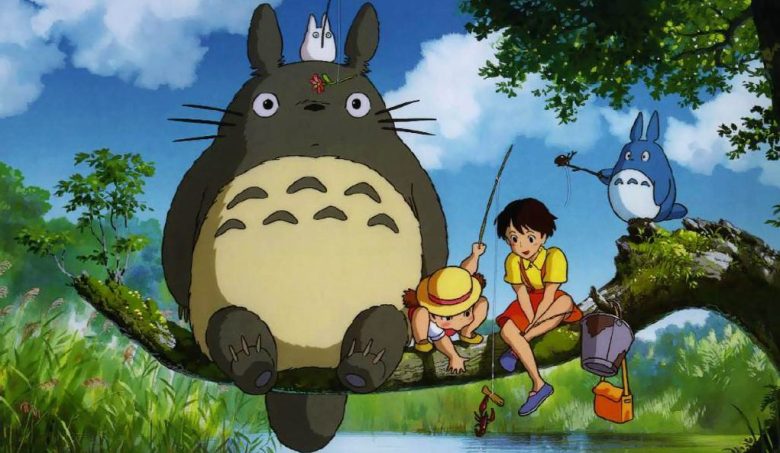Emma Rivers discusses the recent announcement that the entire catalogue of works from Studio Ghibli will be available to stream through HBOMax from April 2020.
Studio Ghibli, the award-winning Japanese animation film studio founded by Hayao Miyazaki and Isao Takahata in 1985, has been appreciated by fans and critics around the world for decades. Many of the studio’s films have won awards including the Japan Academy Prize for Animation of the Year and the Academy Award for Best Animated Feature (Spirited Away). The beloved films regularly feature strong female leads, and address themes of environmentalism, the lasting effects of war, and loss of childhood innocence that remain relevant in the present day.
It has become enough of a cultural phenomenon that Japan created The Ghibli Museum in 2001 and is currently constructing a Studio Ghibli theme park set to open its gates in Autumn 2022. And yet, despite this popularity, and streaming services gaining prevalence over the last few years (who doesn’t have a Netflix subscription these days?), Studio Ghibli’s films have never been legally available to stream before this partnership.

Studio Ghibli has always retained tight creative control when it comes to their works and has previously partnered with Disney for dubbing and the international theatrical release of several of their films. However, rather surprisingly, they have chosen not to make their on-demand debut through Disney’s flagship streaming service Disney+. On its launch, HBOMax will be competing with the established giants of the streaming world and will be charging almost double the monthly cost of Disney+ ($6.99) and Netflix ($8.99).
With the choice to finally allow their collection to be viewed on-demand through HBOMax, Studio Ghibli will undoubtedly gain access to an unprecedented number of viewers almost overnight. The increased ease of access and availability inherent to the medium could not only introduce new generations of viewers to Studio Ghibli’s films, but also to the wider genre of Japanese animation itself. Additionally, due to the nature of streaming services, Studio Ghibli’s works will now be watchable at the simple touch of a button; easy to take with you to work, when you go out to the gym or even on your commute home on the train. These beautiful films, with their poignant and lasting stories, can now be held in the palm of your hand rather than being restricted to cinemas and DVD.
However, it could be argued that by having these films so readily available, the unique cinematic experience of discovering Ghibli’s moving stories might become diluted. HBOMax is launching with over 10,000 hours of content and is expected to contain the likes of the Game of Thrones, Adventure Time, and Harry Potter franchises. One has to wonder if Ghibli’s popular-yet-niche films will be buried under the weight of this competing content and become marginalised, or if they will instead find a new lease of life through this new platform.
One can only hope that Studio Ghibli’s originality and strong messages do not become diluted when placed adjacent to more mainstream shows or animations on HBOMax’s service. Studio Ghibli’s choice to modernise and offer their fantastic productions via HBOMax is a difficult one. While having a broader audience viewing these incredible films is undoubtedly a good thing, part of what makes them so memorable is the way in which they are viewed: something that may fearfully be lost when watching them on a dimly-lit phone screen.
Image Credit: Indie Wire

